Wheelchair Accessible New Orleans: The Ultimate Guide
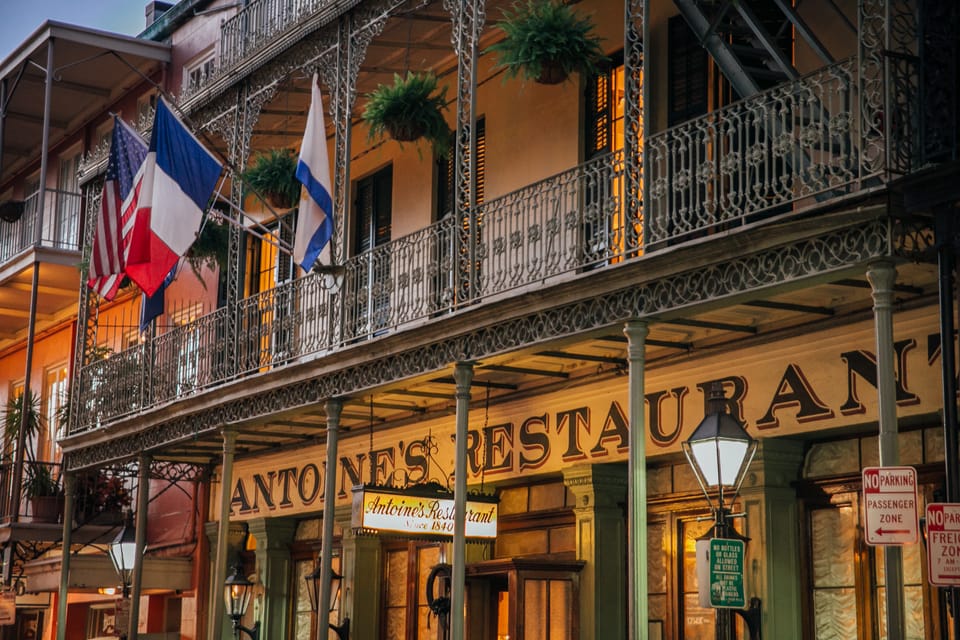
What's Ahead?
- About Accessible New Orleans and Why Travel There
- When Should You Travel There?
- Where to Stay in New Orleans
- Accessible Transportation in New Orleans
- Top 10 Things to Do in New Orleans and Their Accessibility
- Accessible Restaurants Recommended by Our Community
- Accessible New Orleans Tips from Our Community
- Wheelchair Repair Shops & Rentals
- How Does an Accessible Visit to New Orleans Sound?
While everyone is becoming more accessibility-conscious, finding all the right information can still be problematic at times. This is especially true for those trying to plan a trip somewhere. Even now, the information can be almost impossible to find. People with disabilities still want to travel to the top destinations. Unfortunately, due to a lack of information, trips are cut short, made harder, or just don't meet expectations.
For an enjoyable time away, those with accessibility needs must be able to find the right accessibility information for their trip and destination. Information on accessibility should be easily available for a range of factors. We mean that this shouldn't just be provided for attractions with accessibility features. But also for restaurants, hotels, transport, parking, and safety. We have collected a wide range of accessible travel information for anyone visiting New Orleans, Louisiana, making this guide your ultimate accessible travel handbook.
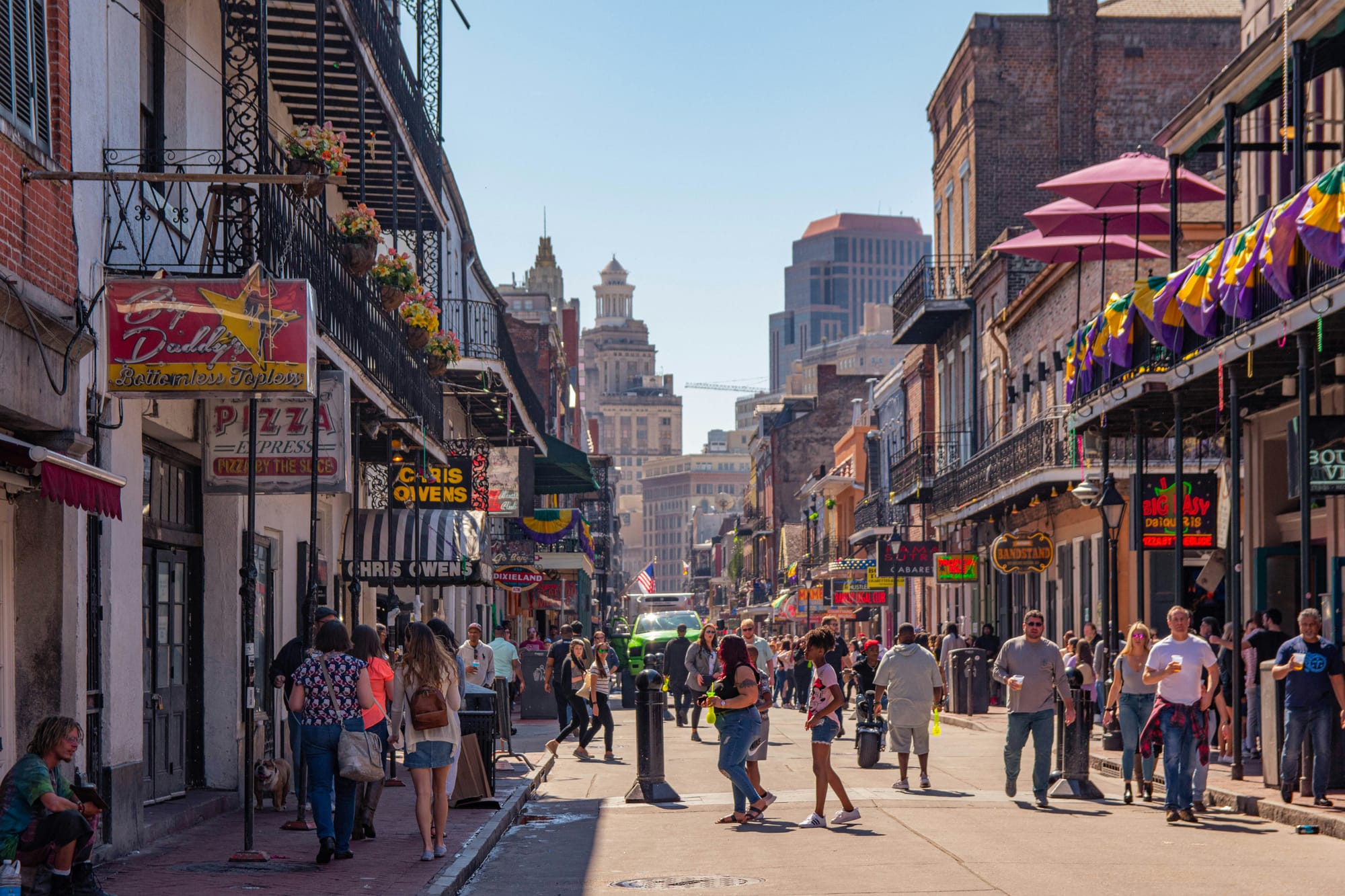
About Accessible New Orleans and Why Travel There
For people with a disability, New Orleans is a very doable city to visit but there are some things you should be aware of before going.
As far as getting around, there are plenty of transport options. Better still, the overall terrain is generally flat, so you won't have to navigate too many steep hills. And yes, that includes the famous Bourbon Street where you'll definitely want to visit. Pavements are cobbled or concrete and brick paved. This makes them accessible for most wheelchairs and motorized scooters, particularly in the Downtown area.
However, keep in mind that depending on where you are, the sidewalks are not always wheelchair-friendly. In fact, they're often the downright opposite. Some areas in particular have bumpy or uneven sidewalks, often with tree roots growing under the paving which tips it up. In addition, there is a distinct lack of curb cuts, which means they are inaccessible to an independent wheeler.
That being said, don't let this put you off visiting. NOLA has some really great reasons to visit, not least when it comes to the food. Part of this comes from the incredibly rich cultural diversity blending Creole, African, and French influences. It's the birthplace of jazz too, offering a wide array of festivals (think Mardi Gras) and music events (Jazz Fest) throughout the year. And, alongside all of this is a stunning backdrop thanks to the historic Creole and French influences giving rise to an array of architectural styles.
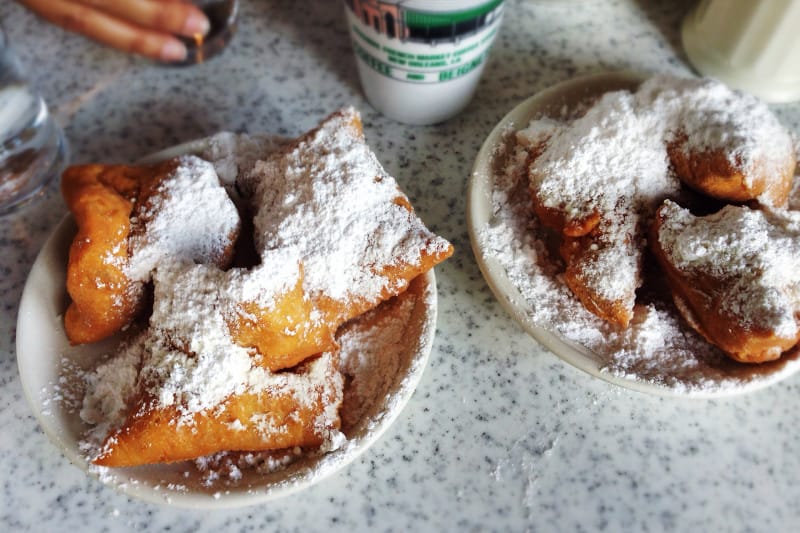
When Should You Travel There?
While you can always find something to do no matter the season in New Orleans, some times of the year are better to visit than others. This is important as the weather can really influence when you travel.
Fall
With temperatures between 60 and 80 degrees F, this is the beginning of the drop in heat. Rain is still quite frequent early on in the season, but it does drop off toward November making this month much more pleasant to be out and about in. Rates are still relatively low during this time too, just make sure to book before December when prices start to climb again.
Spring
This is a great time to visit New Orleans as it is warm, but not scorching hot. Temperatures range from 60 to 80 degrees F. However, this is also the rainiest time of the year with thunderstorms in April and May. There are many festivals during this time too, so this does mean more people and a price hike on almost everything. It's a must to book everything early, otherwise you run the risk of losing out on that perfect hotel.
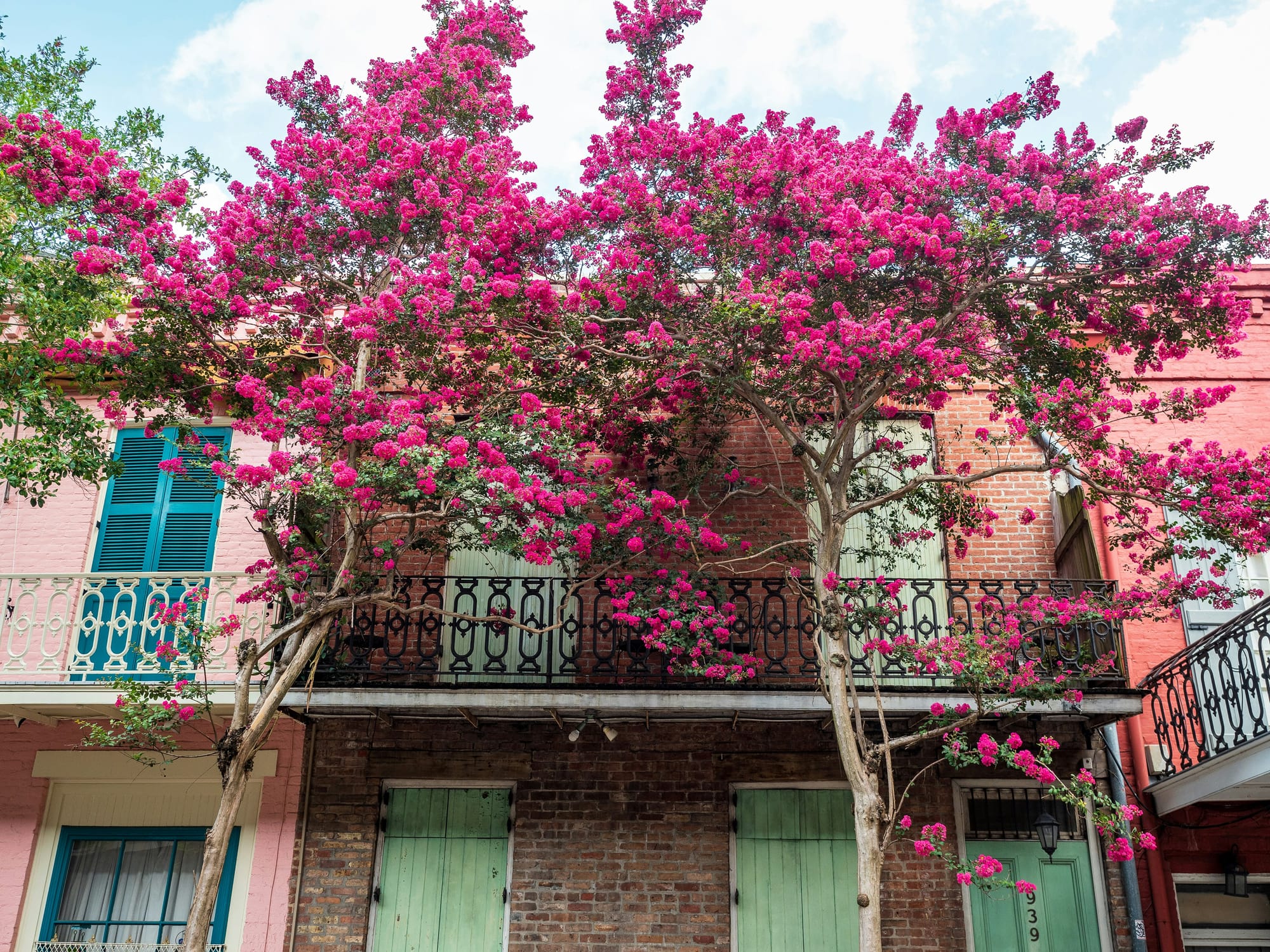
Summer
Summer in New Orleans brings high temperatures and humidity, with daytime highs often reaching the 90s (°F). While it can feel quite hot, frequent afternoon thunderstorms help cool things down. The upside? Fewer crowds and significantly lower travel costs. Many attractions, restaurants, and hotels are fully air-conditioned, offering a welcome break from the heat. Plus, August brings some fantastic events like COOLinary New Orleans, where top restaurants offer prix-fixe menus, and Museum Month, granting access to dozens of museums with one membership. Just pack sunscreen, a hat, and stay hydrated to make the most of your visit.
Winter
This time of the year offers a lot of fun as well as mild winter weather. As such, NOLA is a good place to go if you're trying to avoid the cold as winter temperatures never really drop below 40 degrees F and have highs of 65 degrees F. Rain is very minimal too, being less frequent than the other seasons making it a great time for some outdoor exploration as there is never any snow to contend with.
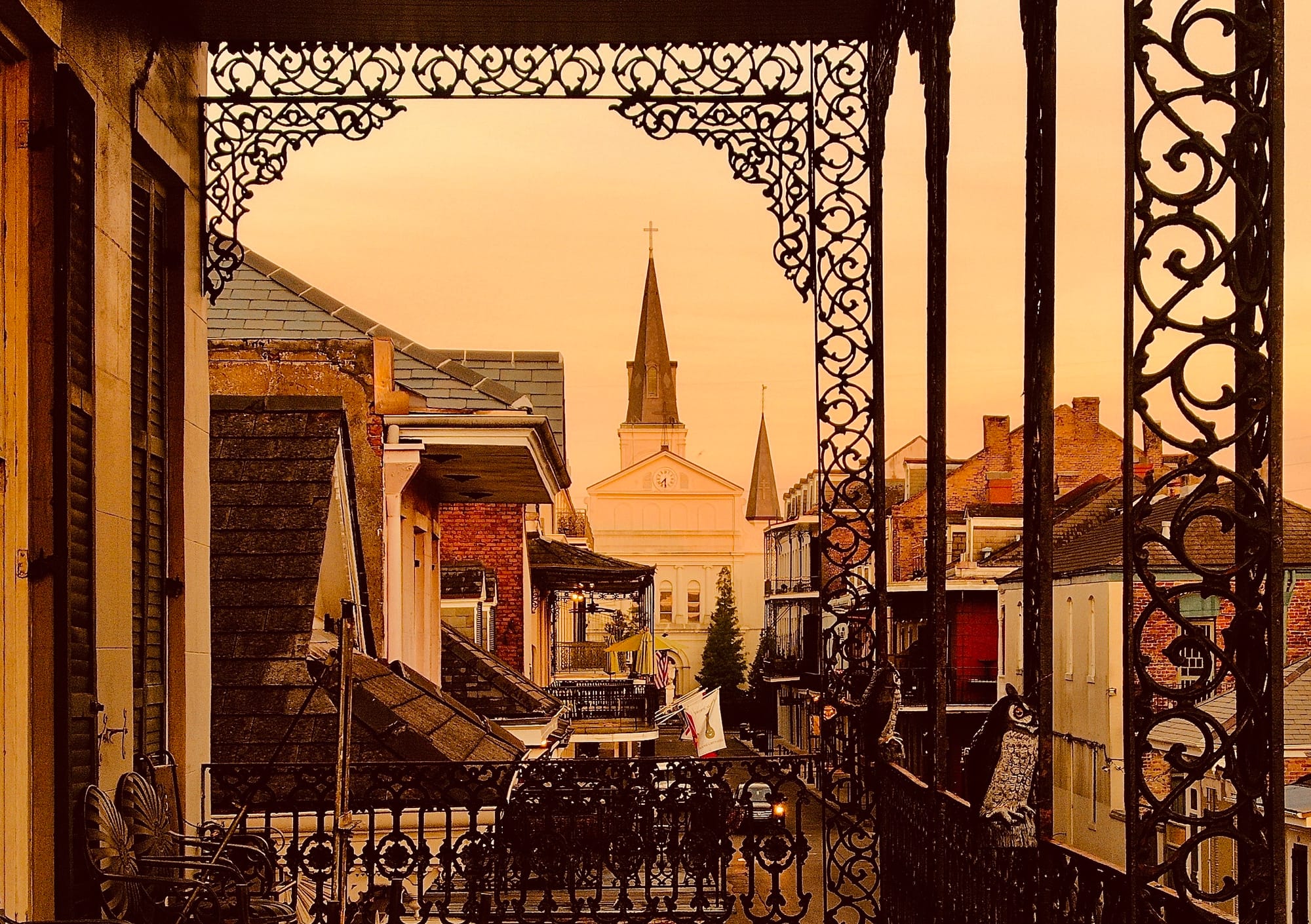
Season Recommendations
If you're not sure when to visit New Orleans, here is a bit more of a breakdown regarding the times of the year in relation to specific festivals and events.
- December to February is the best time to avoid the rain. It’s also when you get some of the balmiest temperatures, though it can get colder in the evening. Beginning on January 6, Carnival season kicks off, leading up to Mardi Gras, which can fall anytime between early February and early March. While the weeks leading up to Mardi Gras are less crowded, they’re a great opportunity to experience more local, smaller parades and celebrations. If you plan to visit during the peak festivities, be sure to book your accommodations well in advance.
- March to May is the best time to visit if you want to enjoy some of the major festivals. During this period you can enjoy the New Orleans Jazz and Heritage Festival or Jazz Fest. Also, French Quarter Fest is also worth attending! It's free to go to and focuses almost entirely on local Louisiana talent. If you want to immerse yourself in music and local culture, book well in advance as these festivals, coupled with some of the best weather, means high room rates and a lot of bookings.
- June to August is best if you’re on a budget. Rates drop dramatically due to fewer visitors during the summer heat. While it’s very hot, there are still parties to enjoy, including White Linen Night and the Essence Music Festival.
- September to November is an excellent time to visit if you want to keep things spooky alongside the gradual drop in temperature. Halloween is very popular here, though rates will rise for this weekend before dropping again. It's also relatively quiet in November, meaning streets are clear for some easy navigation and exploration of the historic center.
Where to Stay in New Orleans
While some outside areas of New Orleans are not wheelchair-accessible, hotels have taken considerable effort to ensure they are despite being in old, historic buildings.
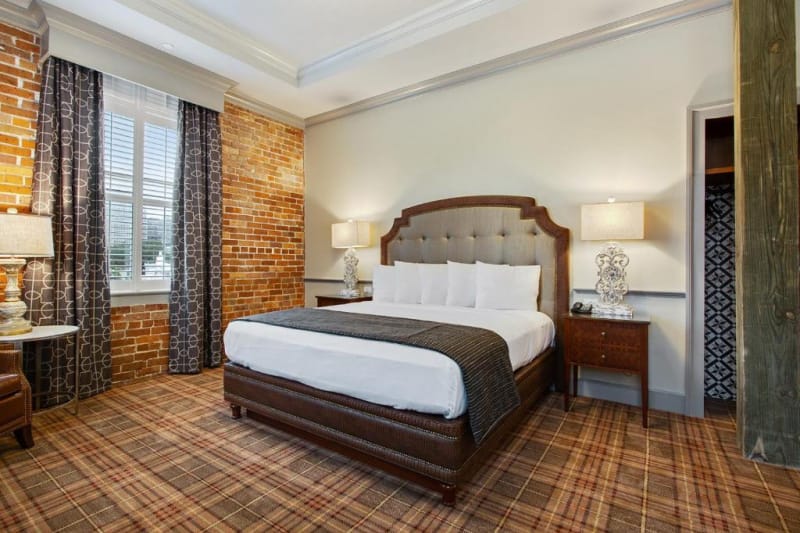
Staying in the French Quarter gives you direct access to all the foodie areas including restaurants and the popular Bourbon Street. You can opt to stay in the fascinating, and popular, Hotel Monteleone, which offers accessible rooms as well as access to one of the best Creole bistros in the city. Alternatively, there's the Maison Metier located in downtown near many near restaurants, art galleries, and shops.
Other options which give you ADA-accessible bathrooms and easy hotel access are Hotel Peter and Paul and the Brakeman Hotel, both located in the Marigny, a lively neighborhood just outside the French Quarter.
The Holiday Inn Express in the Warehouse District offers you easy access to a range of restaurants as well as the World War II Museum. You'll have easy access to a ton of big events too if you stay in this area. Uptown, such as staying in Alder Hotel, keeps you out of the bustle of the main area and is close to Audubon Park if you want more relaxation.
Accessible Transportation in New Orleans
Getting around NOLA is important, and, happily, New Orleans takes this very seriously offering several transport options catering to those with reduced mobility. Knowing what these are, and how it all works is a great way to get started with your planning for the trip.
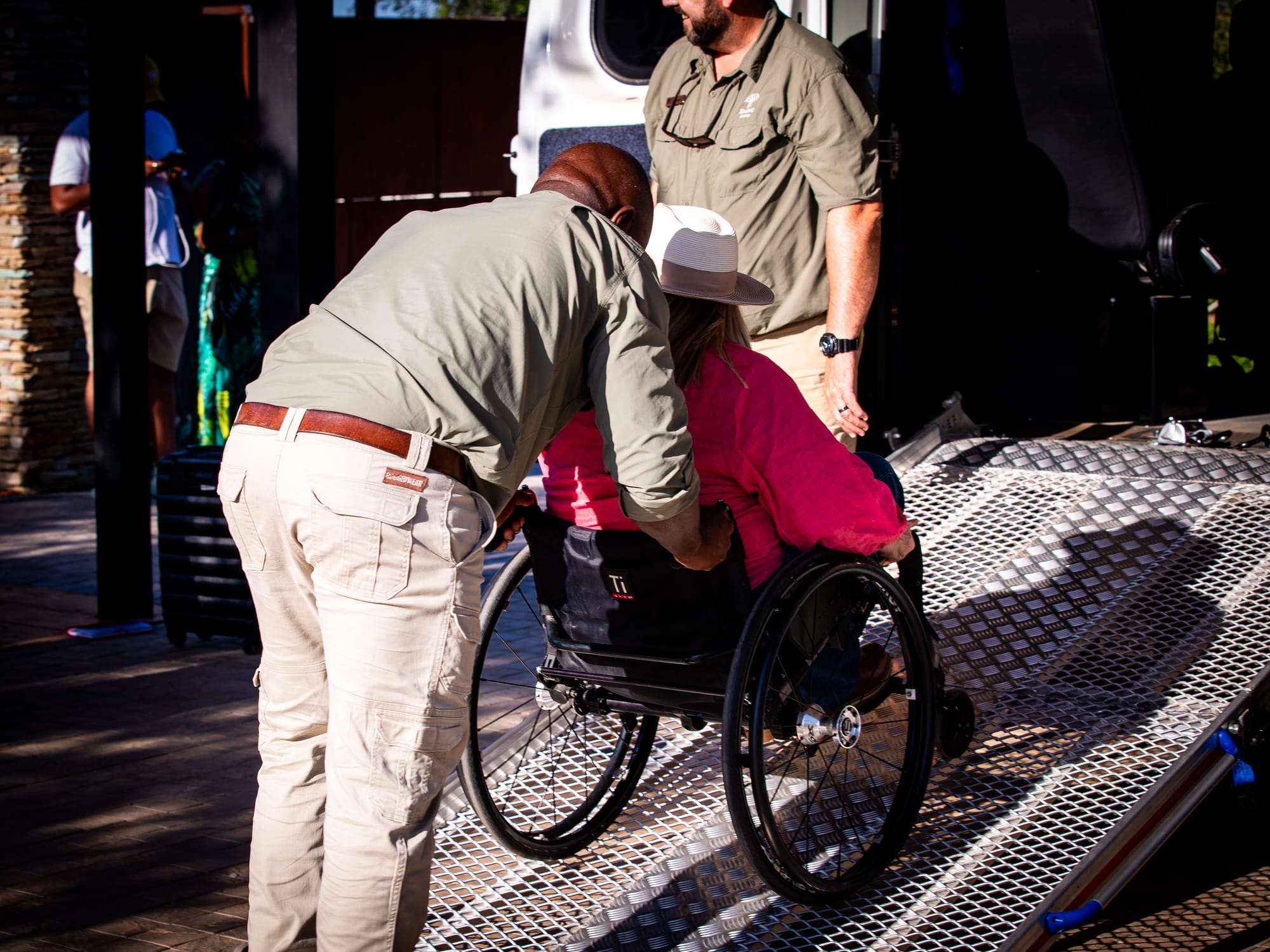
Moving to / from the Airport
If you're coming into Louis Armstrong New Orleans International Airport (MSY), then there is a simple option for taxis. Booking in advance is advisable if you have specific requests. UberACCESS and Lyft Access Mode may offer wheelchair-accessible vehicles, though its not guaranteed. Both can be selected on their respective apps.
Public transport like the Jefferson Transit bus (Line 202), is an accessible option taking you to NOLA downtown. Of course, renting a vehicle is the easiest option to avoid any stress. You can book this through Wheel the World. We can get you sorted for just a quick trip from the airport, or longer, multi-day hires.
Getting Around New Orleans
Once you arrive in New Orleans, you need to figure out how to get around. Some areas, once you're there, are wheelchair accessible. But to make the most of your trip you need to be able to get to the different districts and areas within the city. Luckily, there are various transport options in New Orleans that offer accessible travel.
Streetcars
The tram system run by New Orleans RTA offers some accessibility. However, not all lines are wheelchair accessible as some have steps. All Red Streetcars are ADA accessible offering motorized lifts and safety zones. Green streetcars are not all accessible, but there are four on the St. Charles Avenue line that are. They are marked with an accessibility symbol. There are 12 ADA-accessible stops and the accessibility guide for Green streetcars can be found here.
Buses
While streetcars aren't all accessible, the buses, managed by the Regional Transit Authority (RTA) are. These buses are all wheelchair-accessible, have priority seating, safety zones, lifts or ramps, and can kneel the bus at any stop. There are onboard announcements, large signage, handrails, and you can even tell the driver your stop to get aid when disembarking.
Taxis
Although there is one wheelchair-accessible taxi van offering a lowered floor, visitors state it is usually unavailable, so public transport is the better option.
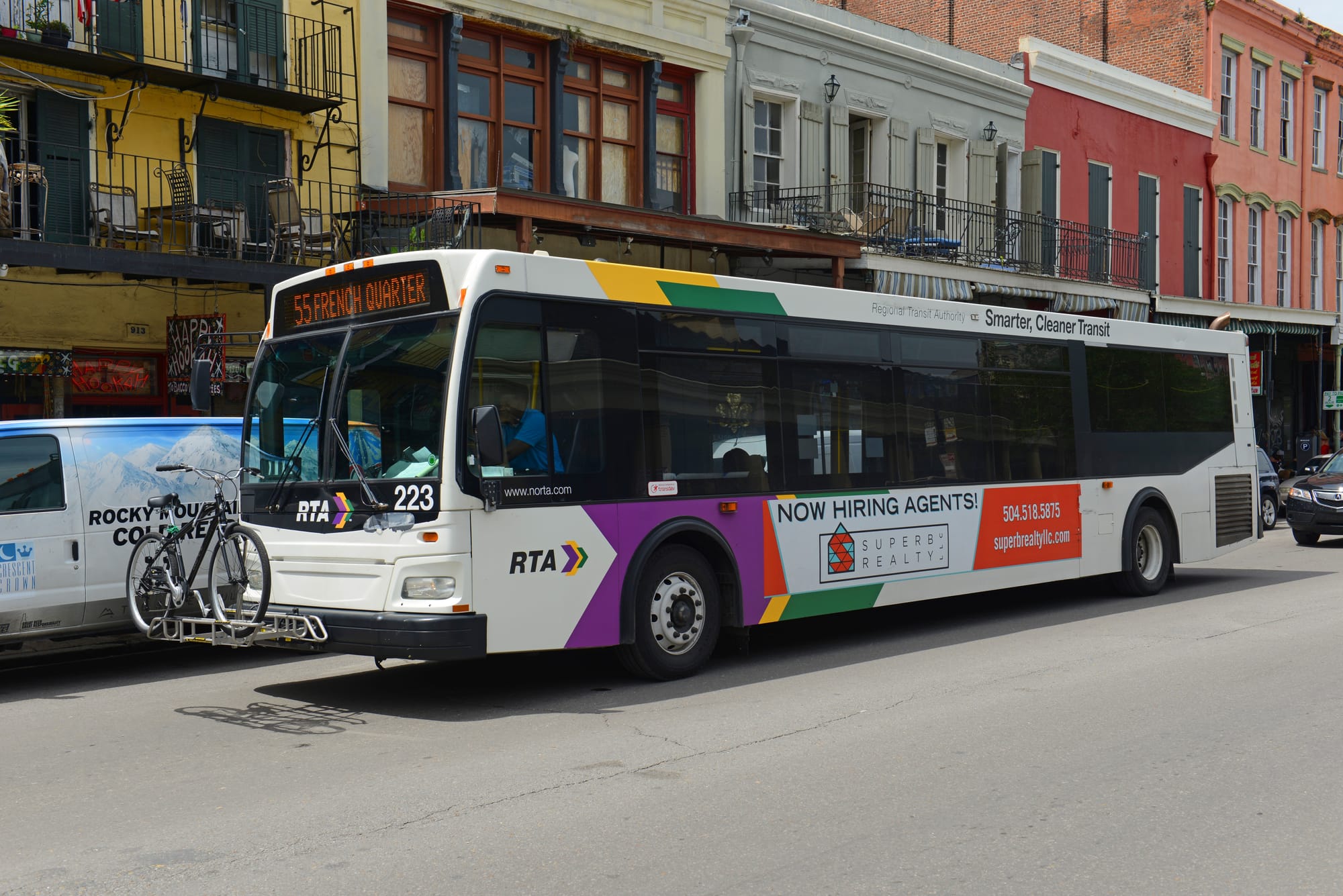
Top 10 Things to do in New Orleans and Their Accessibility
New Orleans has a lot of things to do and see, many of them completely wheelchair accessible.
1. New Orleans Garden District
Packed with stunning historical buildings and homes, this is a place filled with nature, gardens, and roads lined with trees. It's a great place to go for a wander among some of the historical architecture, and the sidewalks here are wide and level. Consequently, it's one of the easier places to go for a solo day out or to join a guided tour.
2. French Quarter
This is, without doubt, the go-to destination for any NOLA visit. The city was founded in 1718 by French colonists, and this area is the heart of New Orleans where all the culture and history come to the fore. Be aware, though, that the sidewalks can be made from older stone and can be bumpy or uneven. Furthermore, many of the historic buildings can pose problems due to stepped entrances, narrow halls, and a lack of elevators. That being said, it’s a stunning area to explore the French and Spanish architecture as well as go on an accessible French Quarter Food tour. And, as this is such a popular tourist area, you will have no problems finding restaurants, shops, and attractions with ramps and other accommodations for those with reduced mobility.
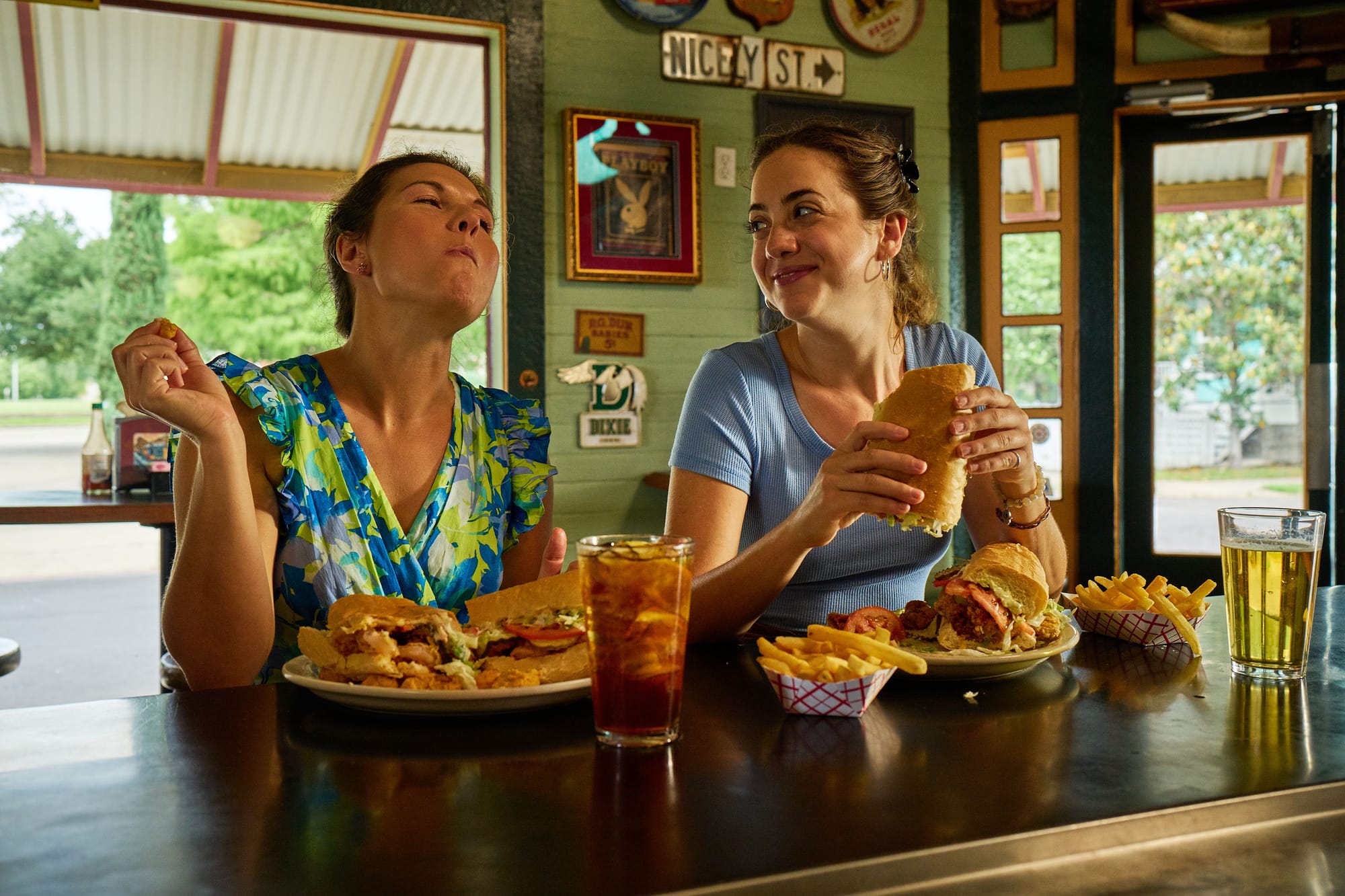
3. Jackson Square
One of the iconic landmarks of the French Quarter, Jackson Square is a historic public park. It's found in the center of the French Quarter. Many of the main historical buildings surround the square including the Cabildo and St. Louis Cathedral. For more than 50 years, artists have gathered in this area to hang their work as well as to play music. As such, it's the ideal spot to soak up the ambiance of the city or simply relax. It's accessible from different points all with access ramps or leveled areas for reduced mobility access.
4. French Market
Another food tour option, the French Market is jam-packed with food stalls, music, arts, and crafts. Spend time absorbing the local culture or grab a souvenir or three. The market is open all year round too, so you won't miss out on any of the fun. Better still, this can be explored by solo wheelers too. The aisles between stalls are generally wide giving you great access as well as improved human traffic circulation. There are ramps in many spots for easier access, and there are ADA-compliant restrooms to ensure comfort for all.
5. Bourbon Street
This famous street in NOLA is well-known for being lined with bars, live music, and a ton of restaurants. It's a relatively flat area at least, which means not too much strenuous exploration. While not all bars and venues are accessibility-ready, many are. Numerous venues have ramps and those that don't have friendly staff on hand offering assistance as and when you need it.
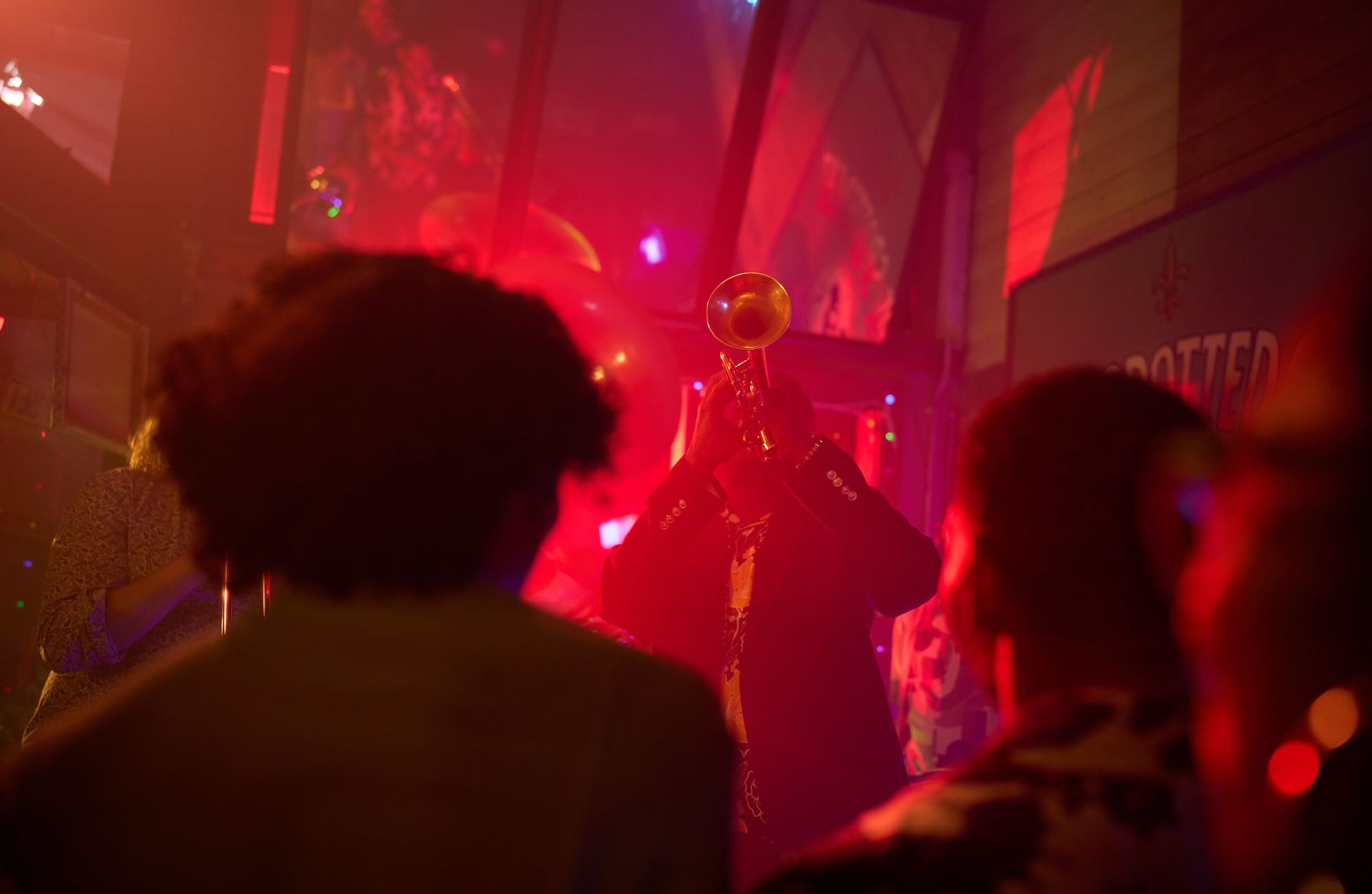
6. National World War II Museum
Educational and inspirational, the National World War II Museum is home to a large selection of exhibits from after the war. It offers complete accessibility including ramps, elevators, and ADA restrooms allowing those with reduced mobility access to all exhibits.
7. Audubon Park
For time away from the crowds, head to Audubon Park where you can wander around the accessible, paved trails in nature. The park has lakes, gardens, and trees that are over a century old. The accessible picnic areas make it an ideal place for some downtime and relaxation.
8. Mardi Gras World
If you want to find out more about Mardi Gras, visit this museum. You'll see the floats and decorations used in the parades. Importantly, you can also discover the history behind the event alongside all the traditional aspects. There are ramps for accessibility throughout too.
9. Cemetery Tours
Part of NOLA's fame comes from the unique architecture found here. It's not only the buildings that are stunning but the historic tombs as well. Be aware though, that access is limited on these tours due to the terrain within the cemetery and the closeness of tombs.
10. Riverboat tours
Who doesn't love a panoramic view? If that's you, then there's nothing better than a riverboat cruise on the Mississippi River. These fully accessible tours give you a unique view of the shoreline. And, they provide you with in-depth history about the river and its cultural importance to New Orleans.
Accessible Restaurants Recommended by Our Community
Here at Wheel the World, we have a massive community of fellow travelers who have put together some of the best restaurants for you. These restaurants all give you ample space to maneuver, ramps and staff aid where needed, as well as adapted or downstairs restrooms complete with handrails, high toilets, and other adaptations for those with reduced mobility. Check out this list of accessible restaurants in NOLA complete with ADA-compliant restrooms.
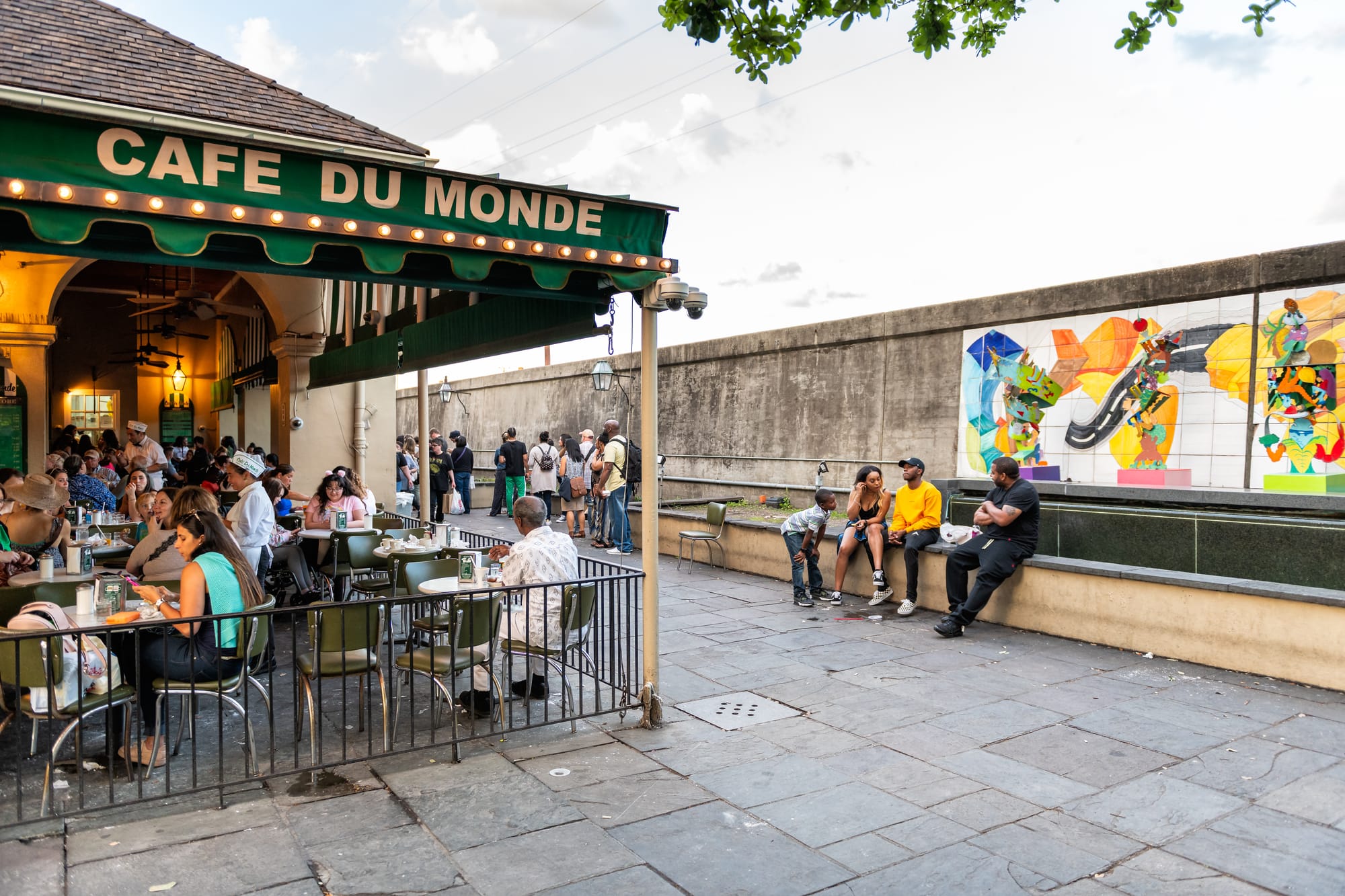
- Commander's Palace: Offers fine dining in the Garden District with an elegant vibe and Creole cuisine. It's also known for its jazz brunch.
- Café du Monde: Now with ten locations, the original cafe is located in the French Market and is known for its chicory coffee and beignets.
- Galatoire's: Located in the French Quarter, it offers a lively vibe alongside traditional Creole food.
- Chemin a la mer: Set on the riverfront, this is located in the Four Seasons Hotel and serves stunning seafood and steaks.
- Criollo Restaurant: Found inside the Hotel Monteleone, this is a Creole bistro with a seasonal menu and a revolving carousel bar.
- Cochon Restaurant: Situated in the Warehouse district, this contemporary Cajun eatery is famous for using locally sourced ingredients.
- Emeril's New Orleans: Known for innovative Creole food and top-notch service, it's Chef Emeril Lagasse's flagship restaurant in the Warehouse District.
- Antoine's Restaurant: Serving classic Creole cuisine in the French Quarter, it's also known as one of the oldest family-owned restaurants in the US and was founded in 1840.
- Jacques-Imo's Café: Combining a lively atmosphere with Creole and Soul food, this café is found in Uptown New Orleans.
Accessible New Orleans Tips from Our Community
Finding Bathrooms
When you need to find a bathroom, knowing where to look is essential for your comfort. Luckily, New Orleans has a number of accessible restrooms throughout the city. Many of these can simply be found in museums, hotels, shopping malls, parks, and restaurants.
Mobile apps such as WheelMate or Bathroom Scout are very useful when looking for restrooms in specific parts of the city. These apps can help you quickly locate mobility-friendly restrooms alongside accessibility details and their exact location.
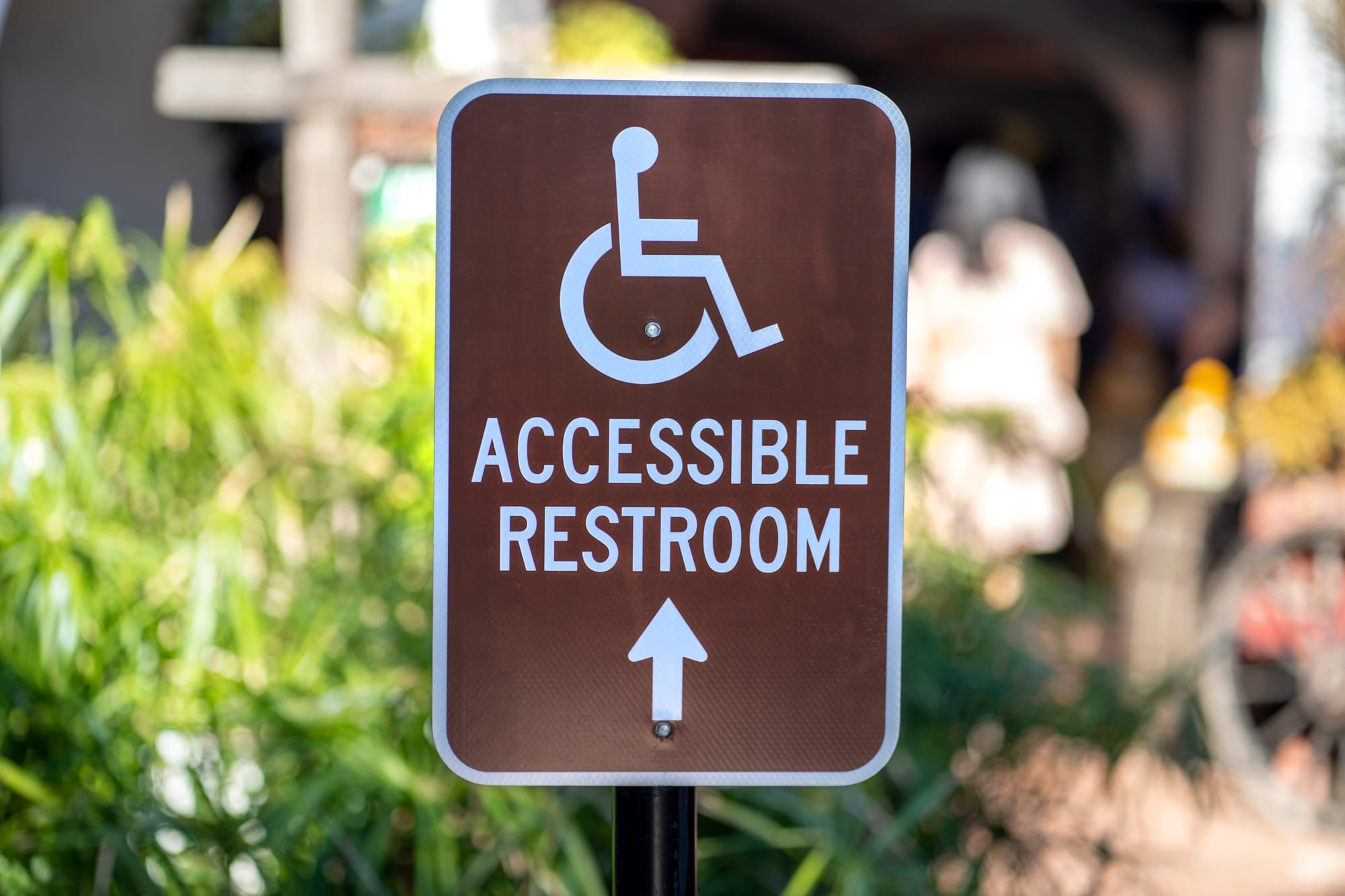
Packing List
No matter how much you travel, you're always likely to forget something. We always do. Depending on your needs and the time of year, here are some important items to consider taking when heading to New Orleans:
- Shower footrest or chair
- Wheelchair battery charger
- Service dog essentials
- Converter if you're not from the US*
- Disability documents and ID
- Warm attire and raincoat (winter season)
- Shorts, sunscreen, bug repellant (summer months)
- Medications
Note for international travelers: *Plugs A and B (flat parallel pins) are used in the USA with 120V supply voltage.
Packing these essentials will help ensure you have a comfortable and enjoyable trip to the vibrant and culturally rich city of New Orleans.
Wheelchair Repair Shops and Rentals
Due to the uneven nature of the sidewalks in New Orleans, you may find yourself needing some running repairs on your trip. There is nothing worse than being unable to get around and enjoy yourself due to a damaged wheelchair.
Here is the top spot offering reliable wheelchair repair services in New Orleans:
- Mr Wheelchair — 1201 Jefferson Hwy A, Jefferson, LA 70121
If you are needing to rent a wheelchair, look no further than the shop below:
- Mobility City of New Orleans - 3501 Severn Avenue
Suite 3B/C Metairie, LA 70002
Safety
For the most part, sticking to the tourist areas means you're going to be fine, just be aware of any situation that looks a little suspicious. You should always be aware of where you are and keep your belongings safely on you at all times. As with everywhere, you should avoid drinking too much, and take reliable public transport if you do. You should also take recommendations made by locals as well as remember the local emergency number, 911, if you have any problems.
On public transport, use the belts and harnesses provided, and plan your trips carefully before you head out. If you need help, get in touch. At WtW, we have experts to assist you both before and during your trip. We can even help you plan it all out!
How Does an Accessible Visit to New Orleans Sound?
Despite New Orleans having some challenging aspects for wheelchair-users, it is very possible to have an enjoyable visit with the right information. Transportation is reliable, there are plenty of accessible hotels to choose from, and the culture and food are something to rave about. Are you ready for an accessible visit? Find your accessible hotel below.
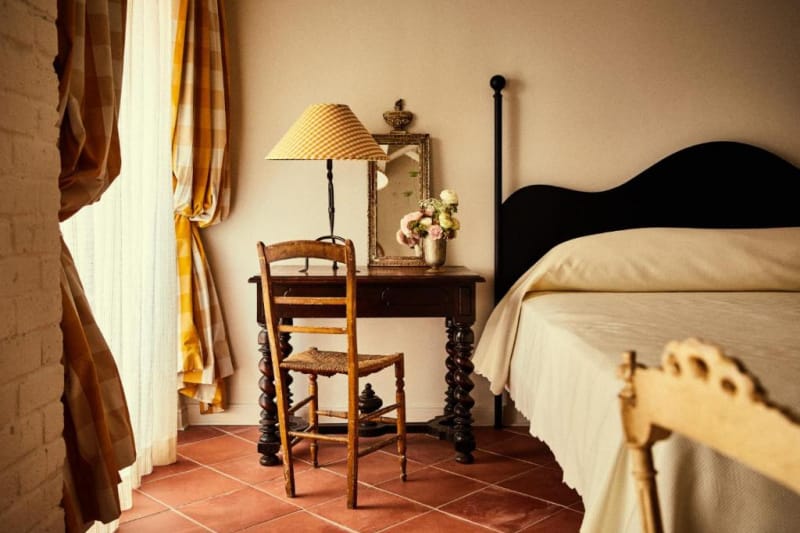
Find an Accessible Hotel That Suits You
detailed, accurate, and reliable information - guaranteed
I'm Ready

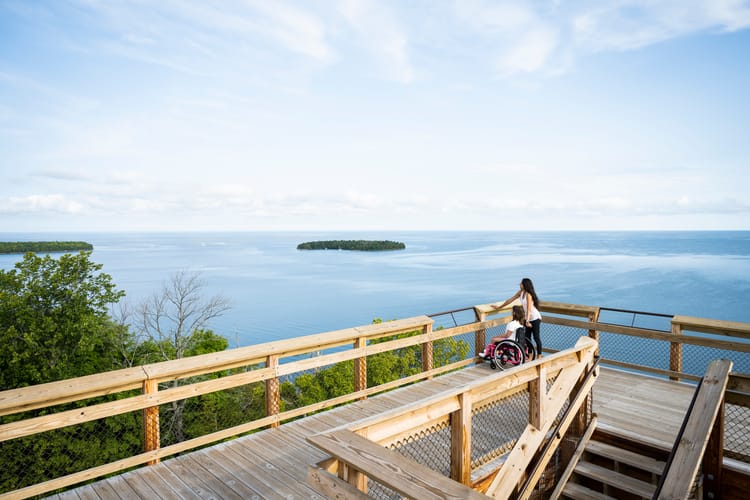
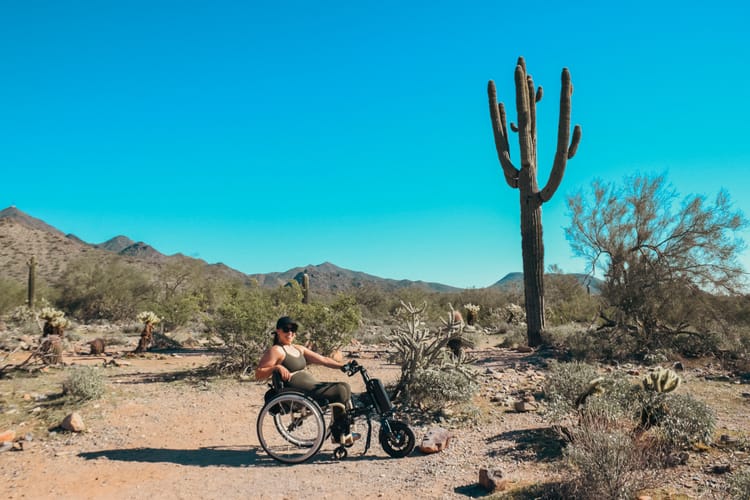
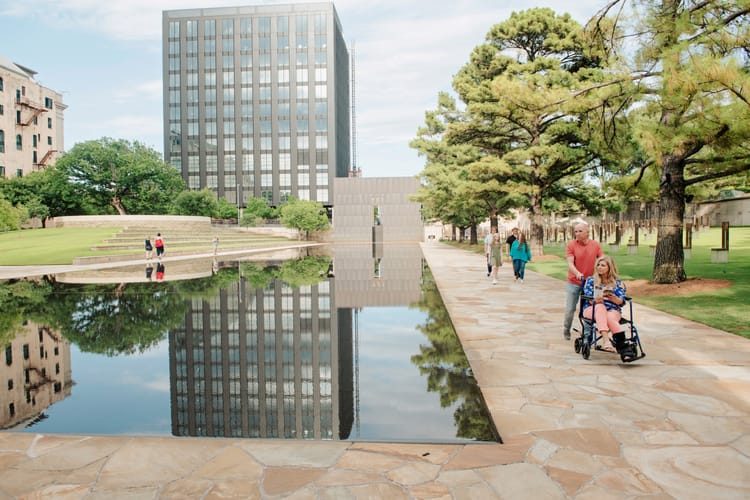
Comments ()